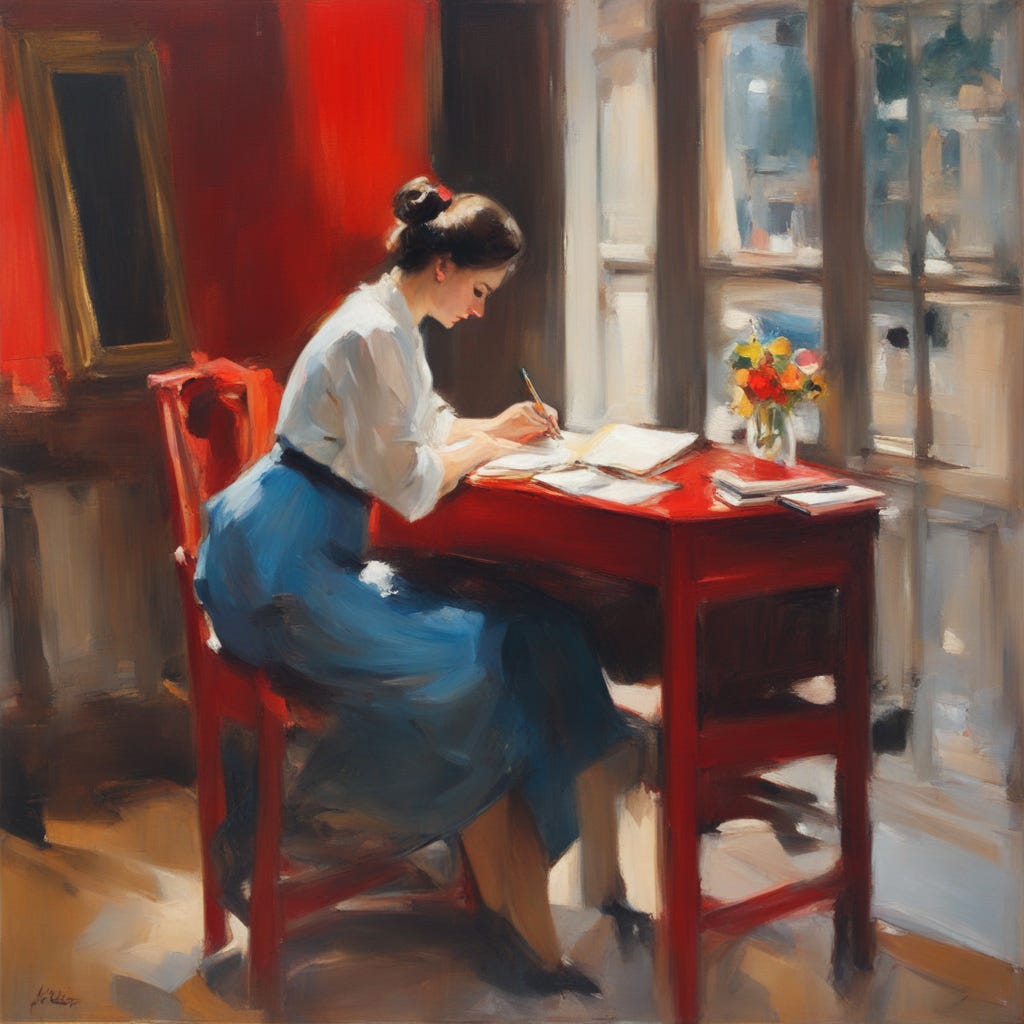Conversations about fiction writing often focus on the big picture: theme, plot, structure, character arc. But every short story or novel begins with a smaller, more manageable thing: the sentence.
A sentence doesn't need to be long, florid, or sensual to be great. It can be a short, direct sentence that conveys action. It can be a line of dialogue that gives us a glimpse into character. It can be an observation that cuts to the heart of a matter.
The best writing is self-consistent. It sounds as if it comes from the same breathing body standing in the same place, rather as wine from a certain terroir is said to have, from its climate and soil, a taste irreplicable anywhere else. What special terroir makes a piece of writing irreplicable? Its sentences. from First You Write a Sentence, by Joe Moran
The sentence sets the pace
Just as scene length, plot, and structure impact pacing, variations in sentences influence pacing as well. If you want a fast-paced action scene, for example, keep your sentences brisk. A more meditative scene calls for longer, looser sentences. The best way to test your sentences is to read them aloud and listen to the sound.
We're going to examine two very different passages, each containing only three sentences. Both passages achieve clarity, both are interesting, and both move their respective stories along. I would also argue that the two passages, though vastly different in style, are equally well-written.
Here are three sentences from the Truman Capote story, Mr. Jones, which you can find in The Complete Stories of Truman Capote:
Ten years pass.
Now it is a cold December afternoon, and I am in Moscow. I am riding on a subway car.
I just love these sentences. I love that Capote dispatches with ten years in three words. I love that we feel the cold and the movement of the subway car with almost no adjectives. I love that we are settled so instantly in place and time. I love the absolute clarity and lack of adornment.
When I was in high school, I loved diagramming sentences. The clarity of those intersecting bars, the precision of the diagonal branches, was beautiful to me. I understood the mathematics of sentence structure in a way I could never understand numbers. However, it has been decades since I’ve taken the time to diagram a sentence. More than twenty years ago, I spent four semesters teaching the nitty gritty of grammar to freshmen at City College of San Francisco. By the time I left City College to teach creative writing at California College of the Arts, I had practically memorized the grammar textbook. But that was a long time ago (and yes, I did just unapologetically begin a sentence with a coordinating conjunction.) When I’m writing, as when I’m editing, I simply go by ear.
Developing an ear takes time and practice — in the form of writing and reading. The more you read good books and good essays, the more adept you will become at instinctively recognizing what makes a good sentence. A good sentence can be long or short, replete with description or stripped down to its bones. What matters is that all of the parts fit together and flow logically.
For paid subscribers below: examples of great sentences, notes on sentence variation, five books to improve your sentence game, and a sentence-oriented writing exercise.




